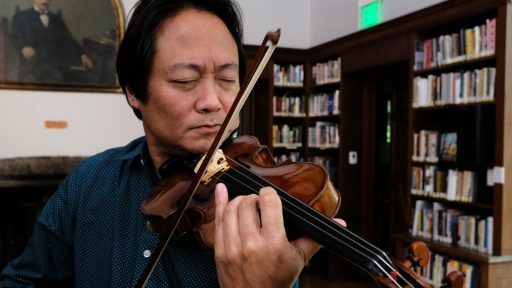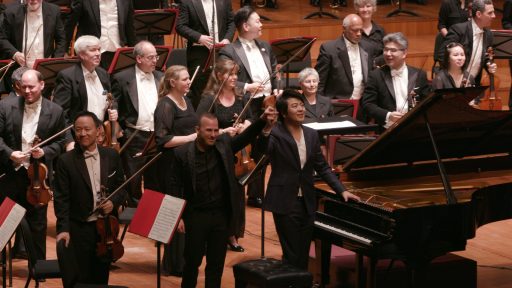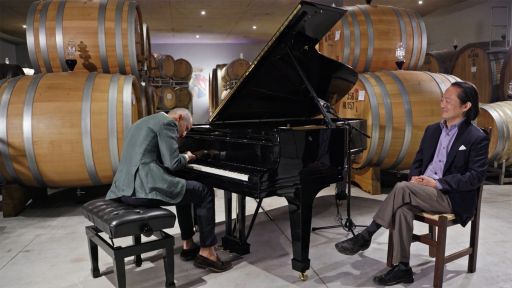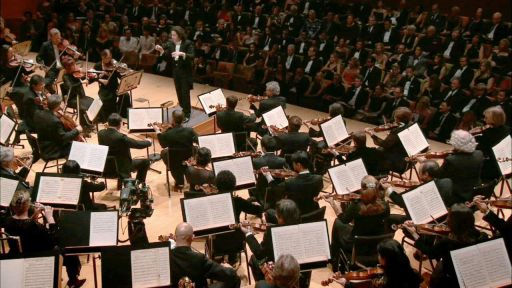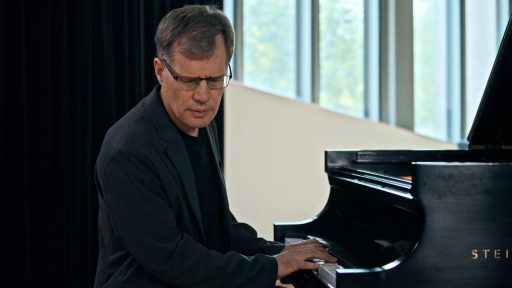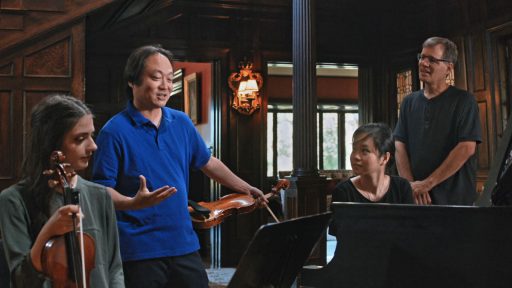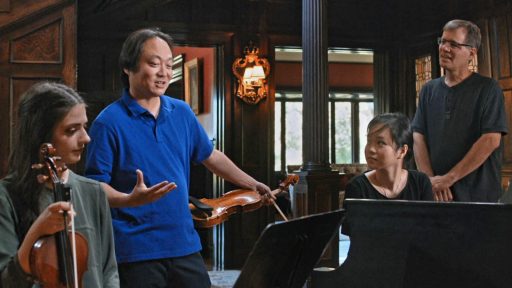Host Scott Yoo and Cantor Daniel Mutlu discuss how Aaron Copland may have drawn inspiration from his Jewish roots and Cantor Mutlu performs “Mipnei Ma,” the source material for Copland’s “Vitebsk.”
Features
Copland was born in New York, the son of Jewish immigrants, and grew up listening to Jewish music.
I went to visit Cantor Daniel Mutlu at the Central Synagogue to hear some for myself.
[Singing in Yiddish]. [Singing in Yiddish]. Fantastic. Thank you. Ah, you sound amazing.
Thank you.
So is this something Copland would've heard?
100%. Copland was born in 1900, in New York City.
And when you think that his family from Lithuania was conservative, they must have taken him to synagogue, at least on the holidays.
And it's on the holidays, by the way, where the big heavy hitter cantors and pieces were sung.
So this is what he heard as a kid?
Absolutely. And we know that the stuff that you hear as a child, it becomes part of us. He internalized this music. Yes. In fact, he heard this play called The Dybbuk, and he must have been completely transfixed by it, because he took one of the tunes from there, which is a Jewish tune, with origins in Hasidic music, and used it as a basis for his piano trio.
No kidding. What's the piece called?
So, the tune is called Mipnei Ma.
Mipnei Ma.
And the play is all about demonic possession, and being stuck between two worlds.
Copland must have been really enraptured by this, and thought of himself both as a young Jewish composer, but also out in the world as an American.
So he's kind of reworking this in his piece.
So this is the source material for Vitebsk?
Absolutely. Yeah.
Okay. Can't wait to hear it.
♪♪ [Singing in Yiddish] [Singing in Yiddish] [Singing in Yiddish] [Singing in Yiddish]
You May Also Like
